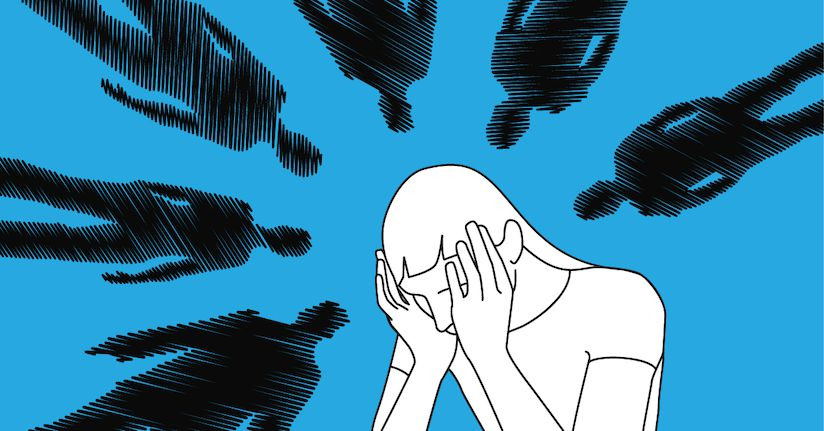Long Term Effects of Post Concussion Syndrome
It can be scary experiencing physical and emotional symptoms of a mild traumatic brain injury without knowing how or when they might cease. Although most resolve within a few weeks or months, some go on to develop post-concussion syndrome—and are even at greater risk for long term effects such as light sensitivity, migraine and headache disorders and even neurodegenerative diseases. There’s even more concerning evidence that the longer you have post-concussive symptoms (3 or more years), the less likely you will ever recover. We take a closer look at some of these potential issues and what patients might expect.
Migraine and Headache
Headaches are noted to be the most common symptom experienced by those who have sustained a concussion and can last for an extended duration of time. Among those who develop post-concussion headaches or migraines, nearly one-quarter can have recurring or chronic attacks for more than a year.1
Light Sensitivity and Photophobia
It is well known that post-concussion syndrome can produce light sensitivity and photophobia, especially if headaches are also a byproduct of the condition. The unfortunate truth is that post-concussive patients have a higher likelihood of light sensitivity symptoms lasting beyond 6 months, further delaying recovery.2 Veterans who experienced a blast-induced concussion may be even more vulnerable to persistent photophobia.
Dizziness and Vertigo
Can you imagine having to deal with dizziness or vertigo more than five years after a concussion? It is a terrible reality for perhaps as many as 20% of people who sustain any type of head injury. Additional mitigating factors may affect the duration of symptoms, including the onset of vestibular migraine, Meniere’s disease or even emotional symptoms like depression.3,4 Furthermore, vertigo immediately following the injury is “the single greatest risk factor for a prolonged recovery,” according to some researchers.5
Depression and Other Emotional Symptoms
Emotional symptoms are often a lynchpin for post-concussion experiences. Unfortunately, individuals who are a year or more removed from a concussion display more emotional symptoms than the general population; this can manifest as depression, anxiety, as well as cognitive issues such as concentration difficulties. Other stressors in the post-TBI phase can also lead to increasing amounts of depression and related symptoms over time.9,10
Chronic Traumatic Encephalopathy (CTE)
Most people associate chronic traumatic encephalopathy—a degenerative brain disease—with sports, notably professional football. However, concussions are the key ingredient to the onset of CTE. Although a single concussive injury is unlikely to bring about CTE, there may be greater possibility for those with multiple and more severe head traumas. Symptoms typically start to show an average of 15 years after exposure and might include:6
- Cognitive impairments including memory loss, changes in thinking
- Psychological changes including impulsive behavior, depression, aggression, suicidal thoughts
- Substance abuse
- Speech and language changes or difficulties
- Difficulty walking, weakness and tremor
- Changes in vision and smell
- Dementia
Amazingly, a person does not need to have been diagnosed with a concussion to develop CTE; instead, anybody who has endured repetitive hits to the head may be susceptible.
Alzheimer’s Disease
Alzheimer’s disease is a type of progressive dementia which affects a patient’s memory, thoughts and speech—and is similarly a possible long-term effect of post-concussion syndrome. In fact, mild traumatic brain injuries have been shown to double the risk for Alzheimer’s—and it only increases the more severe the associating concussion(s).7
Parkinson’s Disease
Concussions, particularly those which were characterized by a loss of consciousness, have been associated with greater instances of Parkinson’s disease too.8 It is believed that inflammation in and around the brain is the primary cause for the condition, which can lead to physical symptoms such as tremors, muscle weakness, and balance issues.
References:
1Lucas S. Characterization and Management of Headache after Mild Traumatic Brain Injury. In: Kobeissy FH, editor. Brain Neurotrauma: Molecular, Neuropsychological, and Rehabilitation Aspects. Boca Raton (FL): CRC Press/Taylor & Francis; 2015. Chapter 13.
2Bohnen N, Twijnstra A, Wijnen G, Jolles J. Tolerance for light and sound of patients with persistent post-concussional symptoms 6 months after mild head injury. J Neurol. 1991 Dec;238(8):443-6.
3Berman JM, Fredrickson JM. Vertigo after head injury--a five year follow-up. J Otolaryngol. 1978 Jun;7(3):237-45.
4Fife TD, Giza C. Posttraumatic vertigo and dizziness. Semin Neurol. 2013 Jul;33(3):238-43. doi: 10.1055/s-0033-1354599. Epub 2013 Sep 21.
5Wallace B, Lifshitz J. Traumatic brain injury and vestibulo-ocular function: current challenges and future prospects. Eye and Brain. 2016;8:153-164. doi:10.2147/EB.S82670.
6Stein TD, Alvarez VE, McKee AC. Concussion in Chronic Traumatic Encephalopathy. Current pain and headache reports. 2015;19(10):47. doi:10.1007/s11916-015-0522-z.
7Gottlieb S. Head injury doubles the risk of Alzheimer’s disease. BMJ : British Medical Journal. 2000;321(7269):1100.
8Jafari S, Etminan M, Aminzadeh F, Samii A. Head injury and risk of Parkinson disease: a systematic review and meta-analysis. Mov Disord. 2013 Aug;28(9):1222-9. doi: 10.1002/mds.25458. Epub 2013 Apr 22.
9Lavoie S, Sechrist S, Quach N, et al. Depression in Men and Women One Year Following Traumatic Brain Injury (TBI): A TBI Model Systems Study. Frontiers in Psychology. 2017;8:634. doi:10.3389/fpsyg.2017.00634.
10Vargas G, Rabinowitz A, Meyer J, Arnett PA. Predictors and Prevalence of Postconcussion Depression Symptoms in Collegiate Athletes. Journal of Athletic Training. 2015;50(3):250-255. doi:10.4085/1062-6050-50.3.02.

TheraSpecs® Glasses for Light Sensitivity
Find the glasses that fit your needs and lifestyle, and stay protected from screens, fluorescents, unwanted blue light, sunlight, flashing lights, and more.
Shop Now



